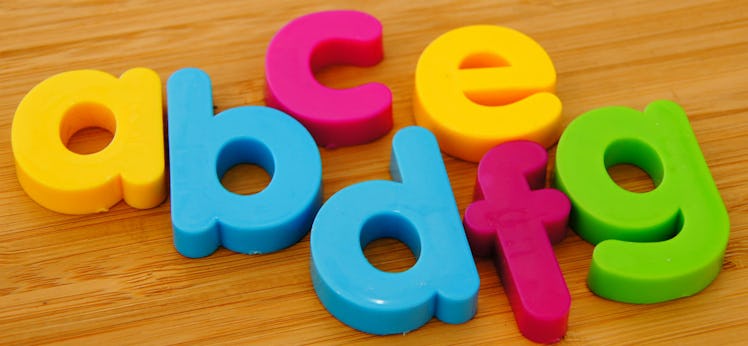What Mozart Has To Do With The History Of ‘The ABC Song’
L-M-N-O, explained.

There’s a lot that’s changed about education, like replacing letter grades with feelings. But, there’s one teaching tool that will never die: “The ABC Song.” The next time your kid gets to “Next time won’t you sing with me,” not only can you do it, but you can also give them the whole backstory.
You may have noticed that all those Kidz Bop songs sound the same — that’s not a coincidence. “Twinkle, Twinkle, Little Star,” “Baa, Baa, Black Sheep,” and the ABCs are all set to the same tune. Nowadays, you’d call that “sampling” (or if you’re Marvin Gaye’s estate, “stealing”). But in the early days of musical composition, apparently you could get away with that shit.
American music publisher Charles Bradlee was the first to copywriter a little ditty called “The A.B.C., a German air with variations for the flute with an easy accompaniment for the piano forte.” And all the kids were swinging on this in 1835. But, long before the lyrics were set, the sick hook was composed by Mozart in the late 1700s. Sort of.
Mozart was a genius. And as previously mentioned, geniuses steal. Mozart’s “Twelve Variations on Ah, Vous Dirai-Je, Maman” is pretty much in the title: It’s 12 variations on the 1761 French song “Ah, Vous Dirai-Je, Maman”, or “Ah! Would I Tell You, Mother?” The original lyrics are disputed, but it’s probably about French kids wrestling with the ennui of stealing the cookie from the cookie jar.
So to recap: “The Alphabet Song” is a French tune, adapted by an Austrian composer, remixed by an American publisher, and sung every 5 minutes by your 2-year-old.
There is also more than one version, because Americans are pretty much the only English speakers who pronounce “z” as “zee” instead of “zed.” Most kids learn the American English edition of the song and have to be corrected later. There are some versions of the song that use “zed” and just change up the lyrics at the end to keep the rhyme scheme. In Mumbai they might sing, “T-U-V, W-X, Y and Zed. Sugar on the bread. If you don’t like it, better go to bed.” Strange? Yes. But also coincidentally what your toddler wanted for dinner.
This article was originally published on